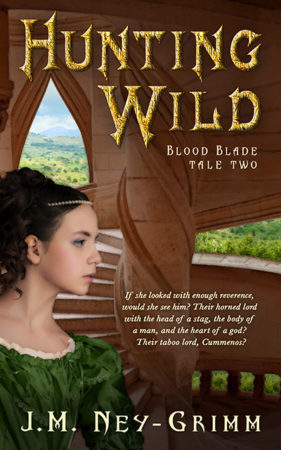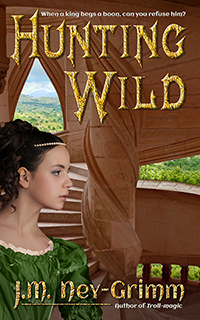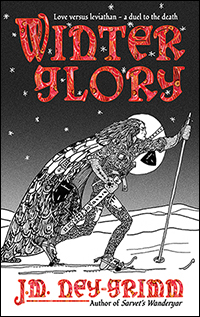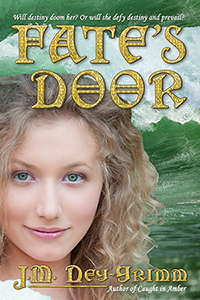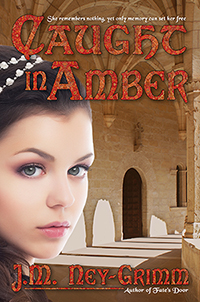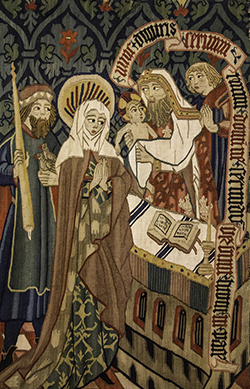Part I is here, if you missed it.
Castel Baloron was once the fortress Castellum Balazoron. It would become Chapel Balarn, and then the Belarno Armory. But that time was not yet, and the falchion hidden in the well of its outer bailey would surface first.
Hunting Wild
The pennants snapped, bright in the stiff breeze. The stones of Castel Baloron were old, worn, but the stands, pavilions, and royal box – draped in scarlet silk – shone vivid and new, erected two weeks ago for the the tourney.
Tulliya bounced and cheered, waving her handkercher over her head.
“Did you see? Did you see him?” she demanded of her companion, a fosterling one year younger than herself. “His footwork was perfect! Amias never even saw that backhand blow til it connected!”
“What do you know of backhand blows and footwork?” retorted Quilleya. Then she grinned. “He is good, isn’t he?”
Tulliya returned her attention to the lists. “I’ve watched the squires in the tilting yard,” she replied, eyes on the two young men finishing their bout. Both stripped off their gauntlets to shake hands, then doffed their helmets to exchange the ritual peace kisses on either cheek, indicating their good will. The jousts were tests of skill, not occasions to form enmity. Here at the tirocinium, an exercise for the newly knighted, it was particularly important that contestants follow the correct forms.
Amias stooped for his gauntlets and helm, limped toward his pavilion. Maximo slung an arm about his defeated opponent’s shoulders, shoring him up. Evidently the two were friends, not merely civil in the aftermath of victory and defeat.
I don’t know all his entire circle anymore. She’d used to, before his father, the Cavalier Pellucon, sent him to Castel Graezon for fostering and training. Before her father, Warder of Baloron, sent her to the Princess Aeliyana as maid-in-waiting. It’s a good thing, she decided. He used to be grubby and annoying. And I was . . . equally grubby and . . . equally annoying. She smothered a grin.
Maximo had delivered Amias to his men-at-arms. Now he approached the royal box and bowed.
“Your Highness” – that was to the Princess Aeliyana – “my Ladies” – another bow to the matrons- and maids-in-waiting – “my victory is yours.” He smiled directly at Tulliya. “May I claim my guerdon?”
Her spirits recovered. She bounced again, once, then quelled herself. She felt a grown lady, bestowing her handkercher after a champion had jousted for her. Better act like one.
Max received his guerdon becomingly, no hints of their childhood association lessening Tulliya’s dignity, and retired with another bow.
His was the last bout of the tirocinium. There would be an interval before all the knights gathered for the melee. The tiros needed rest and refreshment. The spectators did too.
Tulliya craned her neck, looking for the kitchen churls. It was her job – and Quilleya’s – to carry the covered platters up to the royal box. Ah! They were just emerging through the barbican from the inner court. She rose to her feet, nudged Quilleya, and descended the stairs at the back of the box. Some moments later, she ferried a tureen of vongola bisque, a compote of orange marmelade dumplings, and a flagon of chilled wine upward. Lady Juneya wanted bisque only, Lady Varice the dumplings, and Lady Corenna wanted some of everything.
The princess declined all but wine. Her hand trembled receiving the chalice. Tulliya glanced upward in surprise, met the royal gaze. Aeliyana smiled, gracious even in worry, but the line between her brows deepened. What concerned her? Tulliya dipped a curtsey.
“My thanks, child. Truly I have little hunger. Perhaps I’ll desire more when I sup this eve.”
Except she wouldn’t. Her Highness had displayed little appetite for near on a month. Tulliya shivered, remembering her own source of worry, wondering why her fear – yes, it was fear, not worry – and that of the princess ran in parallel.
It’s our king.
On the thought, trumpets blared. Tulliya started, nearly spilling the wine.
“Best put the flagon aside, child.”
Tulliya nodded.
“It will be well.”
Except it wouldn’t.
The chief herald was speaking, his voice projecting above the sussuration of the breeze. “His Majesty, King Xavo of Istria, Lord of Ebior, Caliana, and Nathiar, Cavalier of the Order of the Clepsydra, declares he shall meet Lord Rollo, High Gravine of Eirdry, in the test of the joust. May the stouter champion prevail!”
Another blast from the trumpets.
A knight on a black horse – the massive stallion, Morke – rode from behind the most magnificent pavilion.
Tulliya couldn’t see his face at this distance. Could not have seen it, even were she closer, since the visor of his dark helm was down. She didn’t want to see his face. The memory of it as he received the lost falchion from her hand troubled her still. Turned her worry to fear.
Like all the youngsters growing up in Castel Baloron, she had explored every cranny of her home. The kitchen stores were forbidden, but harmless; the deep stores, taboo and more dangerous. The tunnel below the old bailey well where the spring emerged from the hillside, beyond prohibition, forgotten.
Most memories from Tulliya’s fifth year were blurry now in her thirteenth; that of her first passage up the dark tunnel behind the spring remained clear. Dared by Max – today’s champion, childhood’s best friend – she’d scrabbled under the earthen arch in spite of her fears. I’m big! I’m brave! she’d insisted to herself. She hadn’t been big. Many children of Baloron never risked the underearth challenge. Those who did were nine, more often ten. But Tulliya hated being the littlest, the most timid, the one causing her older companions to exercise prudence. This would show them!
The pebbles of the underground stream bed dug into the soles of her feet, and the chill of the shallow water numbed her toes. The rough surface of the ceiling sloped down, scraping her back, forcing her to bend, to crouch, to curl enough that she caught her balance with her hands in the wet. The light faded swiftly. Had she gone far enough? She paused, eyes adjusting. The glimmering ripples of the spring’s source cast dim flickers against the rocks pressing her down. I can see. She hesitated a moment, then moved forward, picking her way. One foot, one hand, the other foot. The roof lowered again, and her knee splashed down. This is enough, she decided. Could she turn? Or must she back out?
Yes, back out.
She pushed with her left hand, felt pointed impact on her head, found herself sprawled in the water.
Ow!
Her eyes stung. She blinked away tears. I’m big! I’m brave!
She pulled her legs under her, kneeling, waiting for the sparkles that confused her vision to fade. They didn’t. Silver scintillas turned bronze, turned gold. Something ahead glittered and shed light. She crouched lower, creeping forward to see more. What was this strangeness? There, where the water grew abruptly deeper, a marvel gleamed below the surface, embedded in the wall of the well shaft: a mosaic of turquoise and bronze and the green of old, old copper depicting a blade. She reached for it, drew back. Rust appeared on the edges of the blade, dark and crusted brown, flushing swiftly to scarlet, then dimming to blood red. Its glow blackened, twisted her fingers into curled claws. Tulliya screamed.
“No!” she cried and scrabbled backward, turning the moment the tunnel permitted it, floundering wildly through the pools edging the stream and out into daylight.
Max scooped her out of the spring, guilt writ large on his boy’s face, frantic hands gentled by his affection for her. “What happened? What happened?” he gasped.
She never told him.
If only I’d never told anyone. She shivered despite the warmth of the afternoon, struggling to leave her memories behind, to regain today and the tourney.
If only Quilleya hadn’t boasted about the magical tanager, an artifact her family sequestered in their home, the Castel Riquesa. If only Tulliya hadn’t revisited her little girl wish to be bigger, better, braver.
But I did. I did. And disaster loomed because of her. All because of her.
Tulliya’s gaze locked onto the scabbard at the king’s belt: metal with the patina of copper verdigris, set with onyx, traced by bronze filigree. Beautiful, were it not for the miasma of dread exuding from the weapon.
The trumpets blared again as a chestnut stallion – shining gold in the sunlight – entered the field. The knight mounted on the steed wore silver armor chased with gold. This was Lord Rollo, nephew and heir to Sevran, king of neighboring Eirdry, and beloved by him.
The clash between the dark knight and the bright should have been thrilling: the power of their striding mounts, lances shattering against shields, the athletic leap of the riders from their saddles, the flash of blades drawn from scabbards.
It was thrilling to the crowd in the stands, to the armsmen and lords before the pavilions, to the ladies in the royal box. Tulleya bit her lip, forced her hands away from her face, back to her sides. What do I fear? She hardly knew, but this was wrong, horribly wrong. She glanced upward at the lady next to her. Oh, I didn’t know. How had she come to stand at the princess’ elbow? Aeliyana’s face looked as strained as Tulliya’s felt. She senses it too. But what is it?
Both combatants had doffed their great helms, trusting the cervellieres – steel skullcaps – worn underneath. King Xavo’s falchion showed a ribbon of blood. Was Lord Rollo injured? He’d dropped his shield, but wielded his bastard sword with conviction, catching the falchion on its crossguard, jabbing the weak points of Xavo’s armor with its point. His wound, if he had one, never slowed him. Yet the king’s blows were heavy, propelled by the weight of his falchion’s massive blade.
Aeliyana gasped. Tulliya glanced up again. Aeliyana’s eyes were wide, trembling fingers touched her mouth. Tulliya looked back to the joust as the crowd groaned.
Lord Rollo was down, sprawled in the dust, blood leaking from his lips.
“Dost thee yield?” bellowed Xavo.
Blessed Cathal! Did he not see that his foe could not answer?
“Yield, I adjure thee!”
Merciful Eoin! He did not see.
“Must I call thee dastard?” He brandished his falchion at the fallen knight’s throat.
Tulliya flinched.
Then the cirurgiens were there, clustering around Lord Rollo, restraining the lords who had surged onto the field, pacifying the king.
“Your Majesty, he is fallen.”
“Your Majesty, he lacks voice.”
“Your Majesty, let us minister to him.”
The king’s face darkened. “He cowers whilst thee make his excuses!”
Princess Aeliyana touched Tulliya’s shoulder. “Bide. Keep my ladies with you.”
She hurried to the box stairs, flowed down the steep flight in a smooth rush, and came to her brother’s side.
Tulliya found herself unable to stem the maids and matrons in their own rush for the exit and followed the princess perforce, borne on the tide of women. She arrived at her patroness’ elbow just as Aeliyana curtsied and spoke. “Your Majesty, victory crowns thee. Wilt thee not take refreshment before the melee?”
His reddened falchion was not yet sheathed.
Tulliya held her breath. Would he . . . ?
The king whirled, narrowly missed Lady Varice with his blade, and strode for his pavilion.
The gathered lords accompanied their ruler, the cirurgiens renewed their attentions to Lord Rollo, and Aeliyana knelt to add her prayers to their efforts. “Horned Eoin, may your sacrifice make his unnecessary. May your spilt blood restore his. May your hunt chase his death from the world this time.”
Tulliya’s own knees gave way, but she was not praying, not yet. This time had been so like the other: King Xavo wroth, the falchion’s blade bare, and witnesses clustered close. If only I’d said that I could not. That I was faint. That the treasure was gone.
Could one say no to a king?
But he’d been so different when he asked her; before she’d fetched the falchion from its grave. He’d played Blind Man’s Buff with the fosterlings, volunteering as the blind man. He’d read to them in the evenings. And overruled the stablemaster who insisted that girls must use sidesaddles. He’d been . . . kind. Safe. Trustworthy.
When the story of her young exploit in the spring-tunnel passed from Quilleya to Jenifry to Lady Corenna to the princess and, at last, to the king, Tulliya had blushed, but gotten over her embarrassment.
When he knelt before her and begged the boon of her courage and chivalry, she’d left both fear and regret for her lack of discretion behind in her wish to please him.
When she placed the falchion in his hands – herself wet and muddy and shaken a second time – and saw him draw the weapon, she knew she’d made a very great mistake.
She’d emerged from the tunnel, carefully not looking at her own hands. His face held only encouragement, approval, and hope.
“Well done, child,” he told her. “I stand in thy debt.”
Then his hand circled the grips. She’d never seen fear in his eyes before. Not when he faced down the wild aurochs charging Lady Juneya, not when he scooped young Tito from the top of his plunge off the battlements, not even when Romulo surprised a bitter scorpion in his riding boots. Action married to cool aplomb, that was all.
When the falchion met his full grasp, fear passed through terror to something else on his face, another expression unknown to Tulliya’s experience of her sovereign. Could it be . . . horror? Surely not.
Then, with blade free of its scabbard, rage took him.
The lords and their armsmen scattered as the king cut the air in brutal strokes. Trying the weapon’s balance? Xavo’s hound – his favorite bitch, mother to the royal hunting pack and old in her devotion – wasn’t fast enough.
It was terrifying to witness: faithful Matroniya whimpering as her blood soaked the dust while her master hacked the air and ignored her pain. Lord Pellucon dispatched the hound from her misery after Xavo whirled toward the bastion and strode away.
Tulliya shuddered.
I won’t think of it. Not an instant past the moment in the well shaft when her own fingers touched the falchion’s grips. When pain bloomed deep in her joints. When worse . . . had not happened. It didn’t happen, she didn’t say. None of it.
If only she’d dropped the blade down into the darkness below the deepest water in the well. Down, far down, where none could fetch it up to the light of the sky. Or would the king merely have urged her to forsake air, lungs bursting, in a dive toward madness.
The frantic voices of the cirurgiens recalled Tulliya to the present.
“Your Highness, no! His blood is tainted. Do not!”
Princess Aeliyana bent to give the kiss of life, blowing the breath of her breast through the slack lips of the fallen.
Lady Corenna’s words were calmer. “Princess, Lord Rollo is dead.”
Aeliyana raised her head.
“This fault is mine.” Guilt haunted her eyes. “Had I but closed my throat, Lord Rollo would live.”
Tulliya started. But it is my doing, my boasting, my journey under the earth. How could it be hers?
“Our sovereign wielded the blade that slew, not thee, Princess.”
If Princess Aeliyana were innocent, was Tulliya?
I don’t care if I’m innocent or not. I just wish this had never happened.
The cirurgiens summoned the churls with their litter. Aeliyana’s ladies were urging the princess to her bower. Quilleya clutched Tulliya’s hands, weeping. There could be no recalling of words or deeds or events. Only the preparations for Lord Rollo’s funeral rites remained.
These proved fraught with fraternal strife.
Princess Aeliyana retired, and the tournament’s royal box went empty. But Xavo ordered the melee – the final contest of the festival, in which all those entered in the lists fought together against one another – to proceed. Every knight who faced the king and his falchion received serious wounds, but none were slain outright. Most were fit to attend the evening’s banquet, a celebration which Aeliyana also disdained.
Xavo chided his sister when he came to her chambers. He had bathed and changed his garb, but a sense of impending violence cloaked him. Tulliya slipped from Aeliyana’s side to hide behind a tapestry.
Despite his disapproval, the king’s voice was mild, albeit formal. “Thee wouldst scorn thy guests? ‘Tis the lady’s courtesy to preside over her board.”
Aeliyana gazed at him, saying nothing. Her eyes were cold.
“My lords must sup.”
Still nothing from his sister.
“I shall don umbrous mourning and require my lords to do likewise.” Was the king pleading?
It pierced the princess’ chill reserve. Aeliyana bent, covering her face with her hands.
The king’s brow darkened. Would he strike her?
Then his eyes softened. “Dear heart, forgive me.” He knelt to raise her, encircling her shoulders in gentle embrace. His words paralleled this tender intimacy. “All shall be ordered as you wish. Instruct me.”
“Grief is my feast,” choked Aeliyana, and she clung to him. He held her, his face echoing her sorrow.
Tulliya bit one knuckle. Would this, could this, prove Xavo’s redemption? He looked so sad. Almost she crept to his side, forsaking her shelter. No. Her comfort would be intrusion only. His sister’s must suffice. And if it did not? Tulliya stood still.
Xavo released Aeliyana to her backless chair, steadying her a moment, restoring her arms to the armrests. “Tell me,” he urged.
“I would have Lord Rollo’s last rite conducted in the manner of the Gedier,” answered his sister. “He professed the cervine faith.”
Xavo drew back. “The Creed of the Horned One was never reinstated!”
“Many profess it nonetheless.”
“The royal house must not be amongst their number!”
“The royal house might be first amongst their number.”
“Blood and violence birthed the Gedier. Blood and violence shadowed all their long history. And blood and violence brought them down. Their reinstatement would be an evil act.”
Aeliyana bit her lip and looked down. Did she perceive more violence in her brother than in the old religion?
“I spoke my vows on Cemmunnos’ Eve this winter last.”
Xavo whitened.
“You didn’t!” he whispered.
“The renewed deor-faith is different,” insisted Aeliyana. “Cathal’s tale of self-sacrifice and redemption holds our hearts. Bellam’s votary of power and death, not at all; ’tis considered heresy.”
Xavo’s mouth tightened. “The roots of the Gedier beliefs won’t vanish for your entreaty, dear sister. They are there. They are strong. They but wait for opportunity. Forsake your vows, I beg you.”
“Never.” Some of the king’s steel rang in her voice. Tulliya shrank against the stone wall beyond the tapestry, shivering at its cool smoothness. Was Xavo an outward manifestation of ferocity, Aeliyana an inward one?
“To please me?”
Aeliyana’s nostrils pinched, and her lips straightened. Not the right plea.
Xavo’s temporary tenderness transformed into coercion. “I forbid you to profess your faith!” Courtly language, left behind in intimacy, remained absent in his anger.
“You are too late!” She gave him back defiance for his constraint. “I have forsaken my birth name. I am Aoife!”
The king’s eyes blazed. “I declare you in contempt of your sovereign’s will.” He swallowed, reclaimed courtly diction. “Thee art treasonous!”
The princess stood, gathering formality herself. “Dost thee declare the Eirdrian tradition of beheading sororal claimants to the throne less violent than Bellam’s transformations of shadow into light?” she flung at him.
Xavo’s fingers touched the pommel of his falchion, a black opal entire, with the shadow of some green stone behind it. Tulliya held her breath. Then the king’s hand fell to his side, and he turned, but did not storm away.
Tulliya breathed again.
Xavo stood silent a time, then spoke, his back still turned. “Sister, there is reason and quietude in the contemplation of balance. Our Istrian pensare – pursuit of serenity, courage, and wisdom – stems only from love. Canst thee not embrace it once more? The perils of a personal deity – tribalism, zealousness, fanaticism – are real.” Was that anguish in his voice?
The princess reseated herself. “My courage and hope never burgeoned so strong from mere meditation. Love of the Horned One hath made me brave; contemplation of balance dost not infuse my timidity with valor. I shall not forswear myself.”
Xavo turned around. “So be it.”
“Lord Rollo?”
“Shall receive rites of transformation and passage in the traditions of wisdom.”
“And myself?”
Now the king did stride away. Pausing under the archway between the antechamber and the bower, he declared over one shoulder, “Aoife . . . thee shalt go to the tower and the blade.”
Aoife lifted her chin.
The king passed out of her chambers, his tread swift on the stairs.
Lord Ezek and Lord Merral took the princess to Tower Nuvolat, the tallest on the curtain wall of the outer bailey, and locked her in the Queen’s Solar. Aeliyana – Aoife – was no queen, merely a princess, sister to the king, but the solar was the customary repository for any royal prisoner. It acquired its name when Xavo’s great grandfather locked his consort away there for life. She’d conspired with his enemies to take the Istrian throne for herself.
Tulliya visited Aoife, bringing sweetmeats from the hands of her ladies and restraining her own tears. Crying won’t help her, Tulliya told herself fiercely. She needs help, not weeping. But Tulliya couldn’t think of any help – real help – she could bring. Aoife told her to pray, but how would mere petition achieve anything? Aoife needed deeds, not words.
Then Tulliya did think of something. She persuaded Quilleya to ride out with her on a pleasure jaunt to the ruins of Ysbrydion Hill – the old stone circle that once held dark rituals to Cemmenos – and convinced the stable grooms that two maids needed no escort.
Quilleya complained from the moment Tulliya proposed the expedition all the way down to the stables and out through the gatehouse. “How can you think of pleasure and fun when the princess is sentenced to death? I don’t feel like riding. I never liked it much anyway. Why the ruins? They’re creepy and shivery.” And so on.
Tulliya waited until the Castel Baloron shrank to a dot on the hillside behind them and the dust of the dry grasslands rose beneath their mounts’ hoofs before she confessed their true destination. Quilleya liked that no better.
“Do you want to go to Nuvol-tower yourself?” she protested. “The Gediers’ High Holy Hind lives in seclusion for a reason. You’ll get her tossed in prison along with both of us!”
Tulliya sighed. “She won’t boast of our visit. And we shouldn’t. How will anyone know? The horses?”
Quilleya giggled. “There is that legend of the horse who was really a troll and could speak.”
Tulliya didn’t snort, remembering all Aeliyana’s – Aoife’s – lessons in ladylike behavior. And then she did snort. On horseback with one intimate friend wasn’t court. Surely being ladylike needn’t apply to all the hours between sunup and sundown.
Unfortunately Orloitha’s advice dovetailed with that of the princess: pray!
Resisting the high priestess of the entire Gedier order felt disrespectful, but Tulliya wanted something more than that to carry back to Tower Nuvolat.
“What do you think prayer is for?” asked Orloitha.
Tulliya’s lips parted. Then she stammered, “T-to sh-show obedience and faith?” The apostles of pensare would hate that guess. Did that mean it was right for the Gedier?
Orloitha was shaking her head. “Try it,” she suggested. “You’ll learn.”
“But I want something that I know will work,” insisted Tulliya.
Orloitha’s face turned sad. “Don’t we all, child,” she murmured, “don’t we all.”
Her maidservant pressed chilled grapes upon them as they reclined on the Hind’s brocaded divans. Once the girls were rested, Orloitha spoke a message of encouragement for Aoife. And with that Tulliya had to be content.
So she did pray.
Upon waking, before breaking her fast, at the close of noontide dinner, before she supped, and bending beside her bedtime couch. Sometimes she felt holy, once exalted, often despairing, and most times: nothing at all. How could this help? How could Orloitha be content to recommend nothing else? Was she really just praying there alone in her priory? Or did she organize a daring escape?
Quilleya took to avoiding her friend as the Ladies Varice and Corenna looked askance at Tulliya’s sudden access of religious devotion. The Istrian practice of pensare encouraged inward observance over outward gesture. Excessive prayer was a bad sign, not a good.
Through all the waiting for the day of Aeliana’s – Aoife’s – excution, Xavo kept his court lingering at Castel Baloron. Why did they not return to Cincrestes in the capital?
Then King Sevran’s battalions arrived and spread in a crescent below the curtain walls. Lord Rollo had been beloved by Sevran, more son than nephew and heir, and his death must be punished. Had Xavo known of his neighbor’s march? Baloron was more defensible than Cincrestes.
Surely military necessities might prevent Aoife’s beheading? Tulliya hoped, but no word of such was spoken. Xavo’s battle lord tuned the ballistas, while the armsmen drilled in the bailey and his knights sortied at dawn to trouble Sevran’s forces. With the lake beside their camp, the Eirdrian battalions possessed ample water and game. Sevran could afford to be patient.
Xavo was less fortunate. The sky tumbled with gray clouds, but the winter rains delayed. The cistern under the inner court stayed bone dry, the spring trickling down the slope of the outer bailey slowed, and the well above it grew shallow and murky. The drought was typical of the season; only the lack of access to the lake made it critical. But towers of cumulous built and built above. The deluge would come soon.
Sevran’s trebuchets arrived.
Xavo ordered the cistern filled from the dirty bailey well. From dawn to dusk the castel churls carried buckets to and fro, ceasing only when the massive war machines were positioned for use and reconfigured from traveling compression to siege array. The last bucket carriers scurried for the shelter of the inner walls as the first slung boulder thudded too close beside their water source.
Sevran’s men mined the cliffs of the western lake shore for larger missiles to add to the spiked iron balls brought by the munitions battalion. Bombardment was sporadic, smashing against the curtain walls erratically, bouncing into the dust within the curtain walls less often. The ballistas atop Baloron’s towers answered, and the cries of the wounded went up from both sides.
Atop Tower Nuvolat, the guillotine also went up. Aoife’s execution would go forward according to Xavo’s decree.
Winter′s first storm broke the night before Aoife would be brought to the blade. Rain fell in sheets, filling the cistern to overflowing by midnight and washing the stones of the inner court clean. Sevran′s trebuchets ceased lobbing missiles, their balance knocked awry by the mud. The downpour eased at first light to a spitting drizzle, but lightning still leaped between the roiling masses of cloud overhead.
Orloitha, present as the daughter of Cavalier Iytavo, secured permission to attend Aoife′s last hours. Aoife herself prayed unceasingly, but the Gedier priestess drew forbidden spirals of juniper orange and saffron yellow and knotweed green on the princess′ skin – at temple, throat, wrist, ankle, and instep.
Tulliya, also in attendance, caught her breath. This was ritual color from deepest time. Dark. Unlawful. Perilous. But how could the rite be completed? The tower′s battlements were no windswept hill circled by sacred stones. No dancing celebrants, chanting hart-kin, or taboo sacrifice stood ready.
Tulliya shivered. No sacred sacrifice, but a secular one. Would Aoife′s salvation be worth the resurrection of dread rituals from the past? Could Aoife be saved?
Thunder grumbled, muffled by the screens drawn across the solar′s window arches. What was that murmur behind the sky′s mutter. Gulls blown astray by the winds? The roars of an aurochs stung by a refugee heyghoge? Or the hounds in the mews, weary of neglect and the storm′s tumult?
Orloitha finished her last chalked curves inside Aoife′s elbows. The princess rose from her knees, donned her outer gown and goller, and the Lords Ezek and Merral unlocked the solar doors to escort her upward. Orloitha followed them, gesturing Tulliya to accompany her.
I don′t want to go. I don′t want to see this. I don′t want any part of this. But she climbed the curving flight of stone steps at Orloitha′s side.
Xavo, flanked by Lords Pernice and Lazeylo on his left, and the executioner on his right, awaited them. Lady Varice clipped Aoife′s hair to jaw length, and the Cavalice Beccedona helped her remove her capelet – the goller – with its standing neckband, from her shoulders. The heretic princess knelt on the cushion before the guillotine and bent her head.
Thunder growled again, louder this time. The cries of – what creature was that? hounds surely – clashed with the storm′s voice. But they came from above, not below. Hounds in the sky?
A yet louder barrage of thunder boomed, and a rider galloped from a misting gap between low clouds. A rider amidst hounds. He was larger than Baloron′s gatehouse, terrible in his power, dark against the roiling heavens. Tulliya flinched away, unable to bear sight of him, animal and huge as his steed pounded across shaking, riven air. Nor was she alone in her fear. Xavo himself turned his head down over a shoulder, and the courtiers flung themselves prone. Of all gathered on the stone roof, only Orloitha stood fast, tipping her face up and flinging her arms aloft. “Brenin gwyllt!” – wild lord – “Glanhau y budreddi!” – cleanse this putrescence!
The rider bowed his head, a stag′s head crowned by its weighty rack. Tulliya looked away again. Why do they call him the Horned One? He bears antlers, not horns. Cemmenos′ hounds gave tongue, clamorous and fell. The sky cracked, shaking the tower with a force as great as any trebuchet, and lightning stabbed down. The guillotine splintered, up and not out, spurting like a fountain, leaving Aoife untouched.
Tulliya peeked at the king. He cowered still, but his right hand crept along his thigh, feeling for his weapon. Did he dream of challenging this foe? Battling the Lord of the Wild Hunt in a final, apocolyptic duel? Defeating the Gedier deity? Making Istrian pensare pre-eminent once and for all?
No. Abruptly she knew. His aim was nothing so lofty. The blade to sever his sister′s head from her body was broken. He would wield this blade instead!
Would no one stop him?
Lord Ezek? Cavalice Beccedona? Cemmenos′ High Holy Hind?
The courtiers had scuttled for the trap door. Xavo′s executioner gripped his axe. Orloitha channeled her god′s awe.
In the recent habit of prayer, Tulliya prayed. “Brenin gwyllt! Save her!”
And then she knew. I must save her, if saved she is to be.
Tulliya seemed to move in slow motion, weighted by the terrible glance of the Horned One and the bellowing of his hounds, her hand gelid will pressing cold droplets from dense ice. But she was faster than Xavo. Her fingers slid around the grips ahead of his, snatched the falchion from the scabbard, withdrew it from the king′s closing fist.
Tulliya gasped. Pain bloomed deep in her joints, curling her down to the stones, twisting her clutching fingers awry, dragging her eyelids down over darkening sight.
No! He′ll take it from me in my weakness!
“Fod yn gryf, calon dewr!” – Be strong, brave heart!
The god′s voice was a buffet, stripping her of all strength, and yet . . . stripping her of fear also. So this was the purpose of prayer.
Tulliya stiffened her knees, then bent more deliberately, lowering the falchion toward her heels and flinging it skyward. Up, up, her gaze followed its flight. The Lord of the Hunt reached out his mighty hand, grasped the falchion, strangely larger, and brandished it in appalling strokes. Could a god go mad? As had the king? No, his blows were well placed, his steed and hounds in no danger. He sliced a portal in the sky above his rack and tossed the falchion through it, up again, into vapor and wind.
It was gone.
The hounds belled. The horseman called. And the hunt swept over Tower Nuvolat, pounding through another rent in the violent clouds, hidden by the mists.
Tulliya listened. The wild call of the hounds moved across the sky behind the clouds, punctuated by the cries of the huntsman. Did triumph ring in their fell voices? Distance muted the clamor of the hunt, then silenced it. Tulliya lowered her gaze from the heavens.
Orloitha stood rapt, eyes closed. The executioner gripped his pole axe, mouth open and eyes wide. The only others remaining on the battlement were the princess and the king. Aoife knelt still, but her back was straight and her head erect. Xavo fell to his knees before her, crunching down on the shards of the guillotine, heedless of sharp metal and splinters. His spoke steadily, but tears glided down his lean cheeks. “I am not fit. My deeds prove it. Wilst thee wear my crown, sister?”
She shook her head, smiling.
“I beg thee,” he pressed her.
“‘Twas not thee, brother,” she said, “but the blade. The Wild Lord hath accepted it. Thee art free of its taint.”
He bowed his head. “Canst thee forgive me?” he whispered.
“I have.”
He reached for her, tentatively, then drew her into his embrace when she accepted his touch. This time he did sob. She stroked his hair.
“Ask me a boon!” he commanded, raising his face.
Her voice was tender. “Thee knowest my desire.”
“It is thine,” he declared. “The Gedier shall be received in my court, welcomed by my counselors, and adjudged safe under my law.”
Now tears spangled Aoife′s cheeks. “Blessed be, dear brother. Blessed be.”
“How canst thee forgive me?” His voice broke. “I cannot!”
“I rejoice in thy return,” she answered simply.
The proclamation reinstating the Gedier had to be done all over again in the great hall before the assembled lords and ladies, armsmen, and bishops of the pensare.
The king tacked on an unexpected addendum. “Castel Baloron shall belong to the Gedier order henceforth, theirs to tend and defend, theirs to enjoy and flourish within, theirs to strengthen against the peril sequestered in the sky above Tower Novulat.” Xavo believed the falchion to be neither removed nor destroyed – merely hidden beyond the reach of men and women – and he feared it yet, perhaps wisely. “I give one last decree for Baloron before I cede it,” proclaimed the king. “My faithful Lord Otavo” – Tulliya′s father – “shall choose if he and his heirs shall attend Baloron in perpetuity or gain a new keep under his ward: my new Castel Zaphiron abuilding on the hilltop to be my main stronghold.”
Tulliya held her breath. Which would her sire choose?
“I bide here, my king, in the home of my ancestors, the home of my legacy.”
Oh, relief. Fosterlings rarely returned home again. But I want to know that home is still here.
Xavo turned toward Orloitha. She was garbed in the celebratory robes of the hart-kin and glowed. “I commend him and his to thy respect and affection. I owe his daughter a debt greater than may be repaid. Cherish him and his, I charge thee.”
“I do,” answered the sacred Hind.
The feast following Xavo′s decrees was long and merry, but Tulliya ate sparingly and left the board soon after.
Maximo stopped her as she paced through the archway leading out of the hall. “My lady?”
“My lord?” She was polite in turn, paused, and then reclaimed their childhood intimacy. “Oh, Max, don′t!”
“Tulliya?”
“Yes, please.”
“Will you walk with me?”
She placed her hand on his arm and allowed him to lead her through the guardroom, across the court, through the gatehouse, and down the bailey′s slope to the wellhead. The low stone coping edging the drop was worn, as always, and warm in the sun, but the waters deep down the shaft glimmered faintly silver.
“What troubles you, sweet Tulliya?” he asked her as they stood gazing into the water.
“It has all come right in the end, but so much pain and peril warped the middle.”
He didn’t pretend to misunderstand her. “The falchion was evil,” he agreed.
“And it was all my fault,” she insisted.
“Was it?”
“I wanted to be big and brave when I was little. And again this autumn. Had I been content in myself, the falchion′s evil would have remained safe under earth and water. I loosed it upon the king.”
“He asked it of you.”
“But it was mine to say no.” She knew that now. Even a king might hear no in chosen moments.
“Then how will you bear your failure?” His eyes were kind, his voice warm, as though he saw her lack differently.
“I don′t know.”
“What of this?” he proposed. “Perhaps your opinion might focus not upon your error – a child′s error – but upon the moment of our redemption, when you cast evil into the heavens for divinity to act upon.”
She bridled at being named a child, and yet the justice of his statement calmed her. I am young, she admitted privately. Could she receive comfort from her atonement?
“Xavo has a good bit more to redeem, you know,” Max added.
“But that′s his task. This is mine.”
“Will you try?” Max took her hand.
She raised her chin.
“Really try?” he prodded.
“Yes. I will.” Somehow that promise shifted something. She wasn’t sure what, but she felt . . . clear. Lighter. Happy.
“Truly, I will.”
* * *
Part I, Blood Falchion, is here.
Read-Only Beauty, another flash fiction story, is here.
Mother’s Gift, also flash fiction, is here.
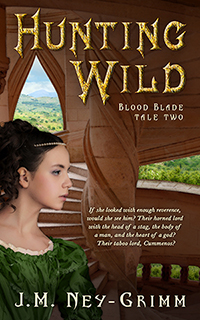 Remeya—fosterling and maid-in-waiting to the king’s sister—worships the old and forbidden horned god alongside the princess.
Remeya—fosterling and maid-in-waiting to the king’s sister—worships the old and forbidden horned god alongside the princess.
